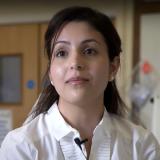Endodontology MClinDent
London, Bloomsbury
Study mode
UK tuition fees (2024/25)
Overseas tuition fees (2024/25)
Duration
Programme starts
Applications accepted
Applications closed
Visit us
Online - Open day
Graduate Open Events: Advanced Aesthetic Dentistry PG Cert
This is an opportunity to learn what is taught and how it is taught in the lectures and hands-on training of UCL's flagship Aesthetic Dentistry Degree Programme. This clinical programme is tailored for dentists at any point in their career who would like to confidently treat aesthetic interdisciplinary cases, with the latest techniques and materials and with user-friendly predictable protocols for their daily practice. Speaker: Dr. Konstantina Dina Dedi DipDS, MS, FACP
Online - Open day
Graduate Open Events: Periodontology (distance-learning) MSc
The MSc Periodontology is a three-year blended-learning programme that offers busy dental practitioners the chance to learn the latest techniques in Periodontology. It combines flexible online learning with compressed residential components in London. We will present the programme structure, the virtual environment and examples of learning activities, including some of the practical elements delivered during the residential weeks. Speakers: Prof Jacopo Buti and Dr Inbar Eshkol-Yogev.
UCL is regulated by the Office for Students.


